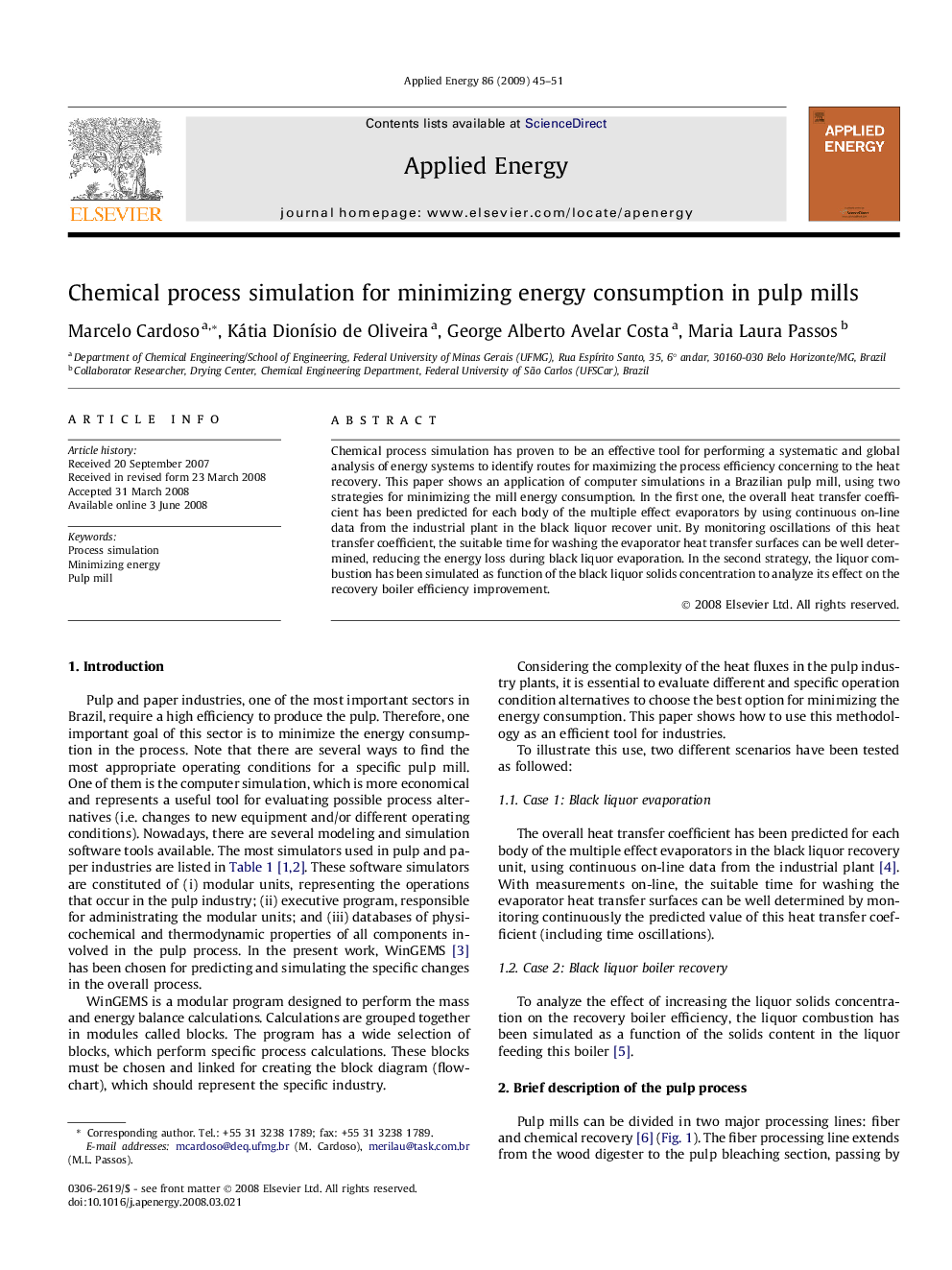| Article ID | Journal | Published Year | Pages | File Type |
|---|---|---|---|---|
| 245020 | Applied Energy | 2009 | 7 Pages |
Chemical process simulation has proven to be an effective tool for performing a systematic and global analysis of energy systems to identify routes for maximizing the process efficiency concerning to the heat recovery. This paper shows an application of computer simulations in a Brazilian pulp mill, using two strategies for minimizing the mill energy consumption. In the first one, the overall heat transfer coefficient has been predicted for each body of the multiple effect evaporators by using continuous on-line data from the industrial plant in the black liquor recover unit. By monitoring oscillations of this heat transfer coefficient, the suitable time for washing the evaporator heat transfer surfaces can be well determined, reducing the energy loss during black liquor evaporation. In the second strategy, the liquor combustion has been simulated as function of the black liquor solids concentration to analyze its effect on the recovery boiler efficiency improvement.
